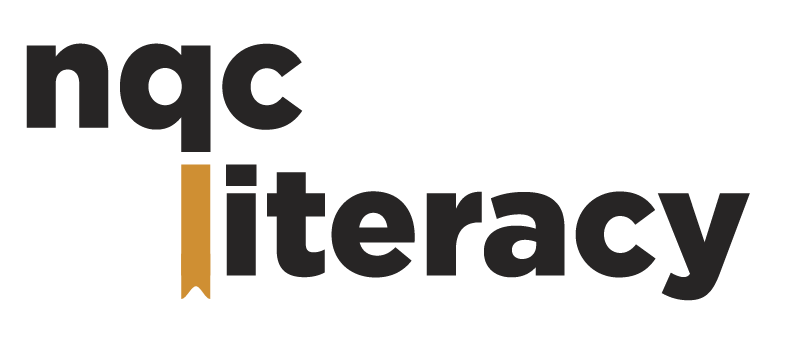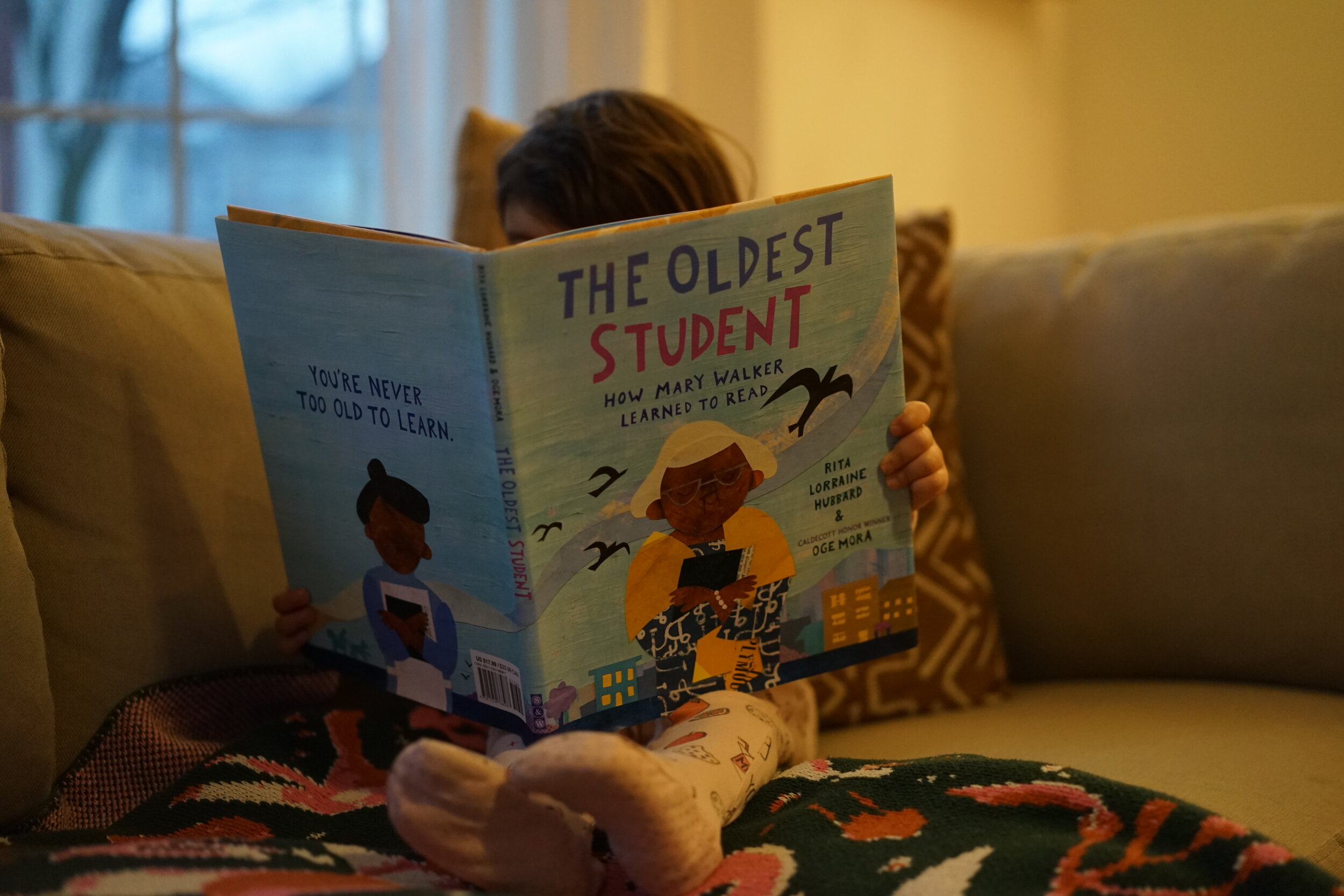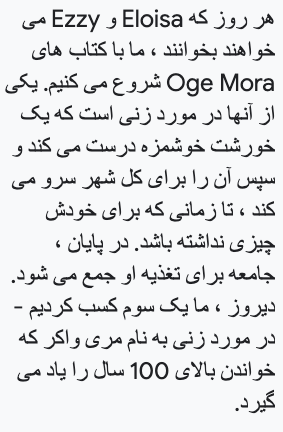Listen to audio in Farsi first. Loose translation below.
Every day when Eloisa and Ezzy want to read, we start with the books of Oge Mora. One of them is about a woman who makes a delicious stew and then serves it to the whole town, until she doesn’t have any for herself. In the end, the community comes together to feed her. Yesterday, we got a third – about a woman named Mary Walker who learns to read above the age of 100.
I imagined Ezzat would ask about learning to read after much life strife – about never being too old to learn, and how challenging it can feel. She herself is currently learning to read.
But no. Ezzy asked how a body could survive so long. How can someone over 100 walk? How could someone over the age of 100 talk?
Maybe she has these thoughts on her mind because my Khaleh is sick, and Ezzy knows her body is failing. She is much younger than 100.
While I wanted to discuss the incredible resilience of Mary Walker having survived slavery and hardship, and learning to read when she was 114 years old – I too have the same questions as Ezzy.
Why do we lose some people young, while others stay far longer? Why do some people’s bodies fail? Mary Walker outlived her own four sons.
The book brought a conversation in our house I had not expected, or readily considered.
Thank You, Omu
Slice of Life, Day 26
————————
It is no secret that I love Oge Mora’s books. Here is an excerpt of a piece I wrote recently for Choice Literacy about using three gorgeously varied picture books to build empathy in classrooms:
Thank You, Omu! by Oge Mora is a lovely, nourishing story about an older woman concocting a delicious stew that ends up feeding the entire town, until she herself doesn’t have any food for her own evening meal. But the community takes care of her and ends up celebrating communal friendship as a result. Guiding questions like the ones below support skill-building around informed empathy, ensuring that students see Black joy on the pages—not just stories of slavery and civil rights struggles. In moving beyond a sliced trope of diversity and allowing students to talk about positive, character-building narratives with inclusivity of voice, teachers can build the muscle in students to have frank conversations about injustice. Depending on grade level, students might stop and jot or draw their thoughts about these questions ahead of talk time.
-
How does the character take care of others?
-
What meals have you shared with others you love?
-
How does the community take care of one another?
-
In what ways does the community thank and show appreciation for each other?
Partial Farsi translation below.



Sorry if this comment pops up twice. I wasn’t sure I was patient enough before I hit back.
I don’t think I was ready for these emotions on a Friday morning. It was so beautiful listening to your words and voice in Farsi. This post had me reflecting on loss and then celebrating the strength of community. Thank you, Nawal.
Also, love Oge Mora books!
First, I’m sorry to hear your Khaleh is sick. (I looked it up and found a few definitions. Is it your aunt? Please correct me if I’m wrong so I can learn.)
Second, you captured such a beautiful book-related moment, in English and in Farsi.
There are so many questions which have no answers. And I liked it that you all talked about such questions. I would like to share this post with my daughter. May I ? Thank you.
This was so beautiful to first listen and then read. The authentic questions of children always lead somewhere important, don’t they? Thank you so much for sharing.
What a gift to hear your voice (today’s multilingual Slices are each so amazing), and to sit at your feet during story time, too. I agree with @Amy – we need to let our young readers lead us somewhere important.
Nawal, thank you for your beautiful Farsi Friday post. I love hearing the story told in Farsi, and the book reviews are great. I don’t know Oge Mora books, but I’ve added her to my list. (I’m out of touch on new picture books since I’m living out of the country right now.) I love what Lakshmi observed about the conversation being asking questions. Such an important conversation for your children to participate in. There aren’t easy answers for every question, so just asking the questions and letting them sit with us is important work.
Nawal, your post is so full of hope and reflection about human life. I love to listen to you in Farsi!! I also appreciate the book review!
Thank you for sharing the gift of your beautiful Farsi with us again, Nawal. (I know you keep saying how imperfect it is, but I absolutely love the experience of listening to it, and I hope you’re getting something out of sharing it with us! Living in more than one language is beautifully imperfect, but perfectly beautiful.)
And how did I not know about these books?! They both sound wonderful, and I loved hearing the questions that Mary Walker’s story sparked in Ezzy. I loved that they weren’t the questions you thought would be generated – kids are always full of (often poignant) surprises, right?
Your own questions felt so raw and universal. Why, indeed, is life and death so different for each person? Incredible that Mary Walker outlived her sons… and now I’m thinking what that must’ve felt like for her.
Thinking of you and your Khaleh.
I loved your Choice Literacy excerpt as well. I’m so glad you are joining the TWT team, because your professional writing is just as beautiful as your slices have been. (I keep using the word beautiful and it’s bothering me, but I’m too tired to open my friend the thesaurus, so just know that yes, your writing is beautiful!)
opens another tab to add Thank You, Omu and The Oldest Student to my daughter’s birthday list
Your post touches so many emotions. I love hearing your Farsi, and somehow, my guess is that you’re your own worst critic. I also love how you admire Ezzy’s takeaways from Oge’s book. Sometimes, no a lot of times, kids have much more important reflections that I do. I know you’re hurting and scared and sad. I’m sending hugs to you. There aren’t answers to the questions you’ve raised in this post.
The multifaceted nature of Nawal Casiano continues to unfold. I didn’t realize you were a Choice Literacy contributor, but after reading your blogs for 26 days, I it makes perfect sense. Lizzie Hetzer from TCRWP introduced me to the artistic brilliance of Oge Mora, and I plan to read everything she writes from here on out. Your piece about sharing this book with your daughter and uncovering the fragility and resilience of this life, moved me to tears. Isn’t it amazing how a single story can open up so many questions and ideas we may have never considered.
I am happy to include Mora’s books in my school library. Our district has done a lot of work in promoting equity in all areas, and our librarians have been fighting the good fight of representing all of our learning community in our collections for quite some time. That being said…I find it endearing that your Ezzy is more curious about longevity than other more abstract topics.
We are gig Oge Mora fans in our house. I love using all of them with kids.